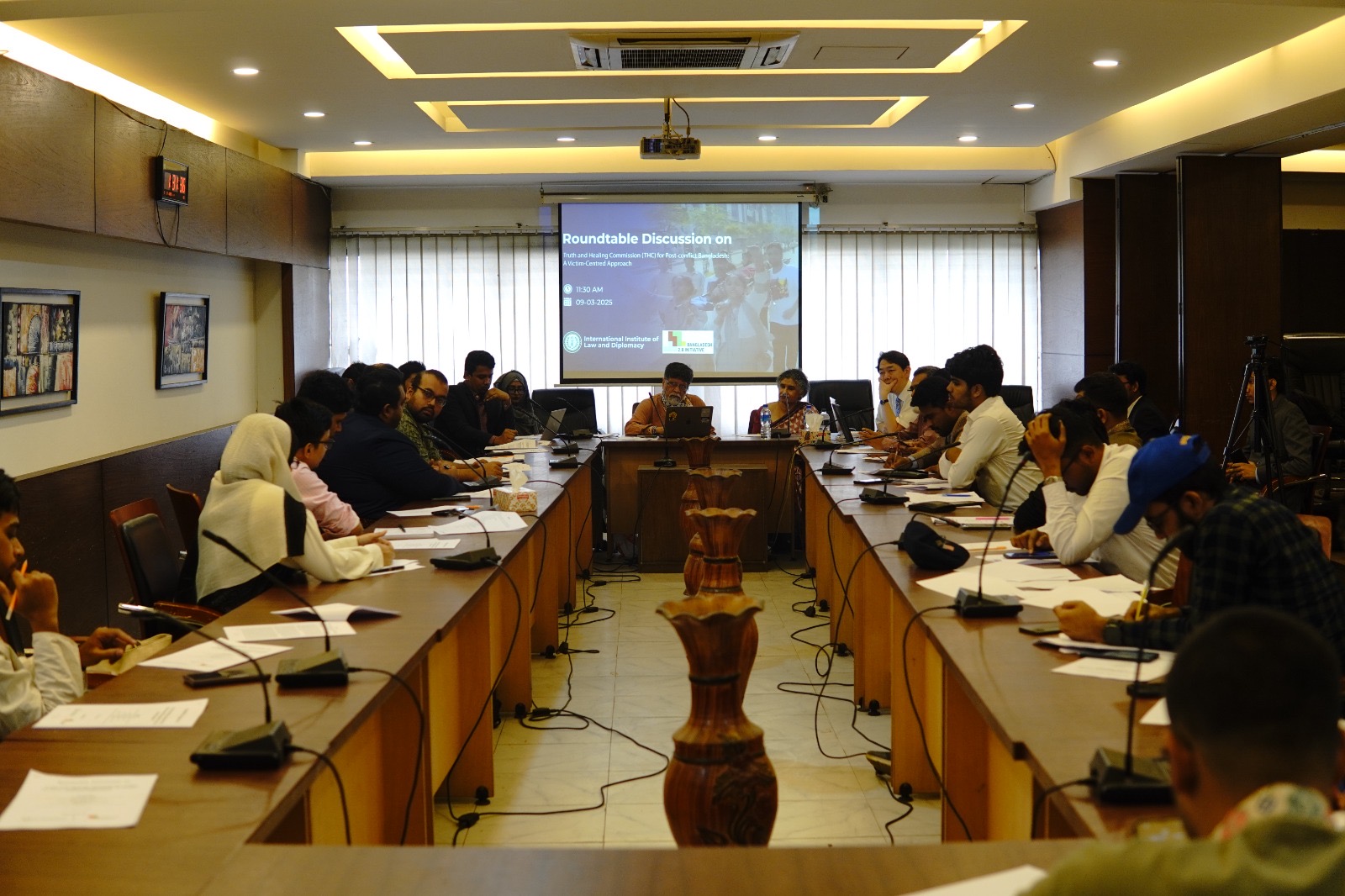News Flash
News Flash

DHAKA, March 9, 2025 (BSS) – A roundtable titled ‘Truth and Healing Commission (THC) for Post-Conflict Bangladesh: A Victim-Centered Approach’ was held today on the Dhaka University campus, highlighting ways to address post-conflict grievances in Bangladesh.
The event was organized by the International Institute of Law and Diplomacy (IILD) and the Bangladesh 2.0 Initiative at the Dr. Abdullah Faruq Conference Hall of the Business Faculty on campus, bringing together key stakeholders, including academicians, politicians, activists, and other civil society members.
Researcher and conflict resolution practitioner Professor Tatsushi Arai from Kent State University, USA, presented the keynote speech at the discussion, which was also addressed by renowned photojournalist and activist Shahidul Alam, UN Senior Human Rights Adviser Huma Khan, and BNP leader Hummam Quader Chowdhury.
Prof. Tatsushi Arai, in his keynote speech, explored transitional justice concepts such as truth and healing. Drawing on his 25 years of international experience in conflict resolution initiatives, he offered practical recommendations for establishing the proposed commission, grounded in the unique contextual elements of the country.
Activist Shahidul Alam emphasized the need for national dialogue to ensure justice for victims, highlighting the importance of creating a structured framework to bring victims' stories to light and address their demands for justice.
Huma Khan stated that while the July uprising led to partial changes in the government, institutions such as the police and judiciary remain largely unchanged. She raised concerns about ensuring the safety of victims in such a context and pointed out that oppression in the region extends far beyond the last 16 years, encompassing long-standing political and historical injustices across South Asia.
Barrister Imran Abdullah stressed the need to implement healing measures such as a public apology and suggested setting realistic expectations for post-conflict Bangladesh, where prosecuting every perpetrator may not be possible.
Hummam Quader Chowdhury shared his personal experiences of solitary confinement in Aynaghor and underscored the necessity of establishing a Truth and Healing Commission to address systemic injustices.
In his concluding remarks, IILD Executive Director Shafiul Alam Shahin said, “The primary goal of this commission will be to help victims overcome their trauma and reintegrate into normal life.”
"Merely prosecuting perpetrators will not be sufficient; we must address compensation and the overall well-being of the victims. This requires direct engagement with them," he said.
Moderated by Advocate Tajriyaan Akram Hussain, the discussion was also addressed by Assistant Professor of Bangladesh University of Professionals (BUP) Md. Ataur Rahman Talukdar, Senior Researcher of the International Crimes Tribunal Khandaker Raquib, July uprising leader Ali Ahsan Zonaed, journalist Sakib Sarkar, North South University Lecturer Omar Nasif Abdullah, and Zahidul Islam Miaji.
Following the discussion, a working committee was formed to advance the Truth and Healing Commission initiative.
The committee members include Dr. Muhammad Asadullah, Saifuddin Ahmed, Md. Ataur Rahman Talukdar, Ali Ahsan Zonaed, Sakib Sarkar, Harun-or-Rashid, Barrister Tajriyaan Akram Hussain, Nousheen Sharmila Ritu, Shafiul Alam Shahin, Zahidul Islam Miaji, and Rajib Mondal.